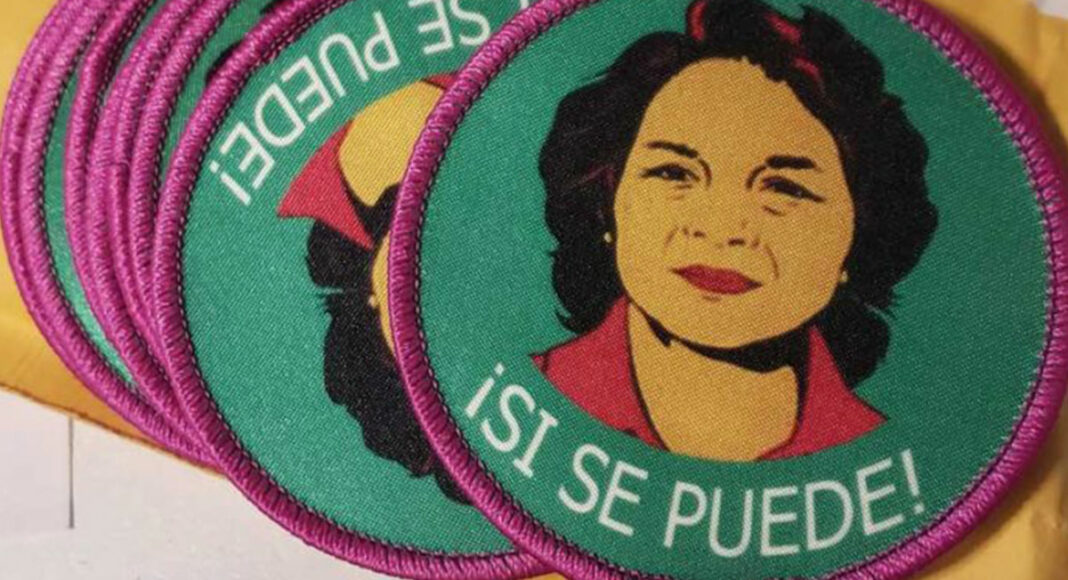On Wednesday, the Girl Scouts of California’s Central Coast (GSCCC) announced it is extending its Cookie Program until April 18, and will reopen some traditional troop cookie booths across the region.
The news comes as much of the state moves from the purple tier into the less restrictive red tier of the California Department of Public Health’s (CDPH) reopening plan. The GSCCC council came to the decision after reviewing recent research and following the Centers for Disease Control and Prevention and CDPH’s guidelines for small group youth cohorts.
“Isolation from their fellow troop members has no doubt resulted in a tough year for Girl Scouts, and girls have been working harder than ever to reach their goals in new and creative ways,” a GSCCC spokesperson said in a press release.
Due to the pandemic, troops have relied on delivery and shipping, including an online locator, a smart phone app and a partnership with GrubHub, to find troops by zip code. The organization has also started the Cookie Booth Buyout, where donors can purchase and donate cookies to a cause of their choice, as well as a number of other donation programs.
The inclusion of booth sales in the final month could help troops by reaching customers who might be unaware of these options.
But the council admits it has been struggling to locate businesses that will allow troops to set up like in normal years.
Council CEO Tammie Helmuth urged businesses to recognize the difficulty troops have gone through so far, and the challenges that will come transitioning from online to in-person sales.
“Girl Scouts are incredibly resilient and business savvy, and even with all of the Covid-19 pandemic challenges thrown at them this year, [they] always find a way to thrive,” said Helmuth. “One of the many ways our community can help support Girl Scouts during their most challenging cookie season to date is to allow girls to set up booths outside of your local business.”
Watsonville Troop 14113 leader Wendy San Juan said that her girls have done relatively well with cookie sales this year despite the challenges—and there have been many.
“This year, the cookies you take, you have to sell. You can’t give them back,” San Juan said. “We had to decide how much to order. We had tough conversations about how we would navigate everything.”
About 60% of the troop’s sales have been entirely virtual, and her girls have been finding creative ways to promote through social media. One girl, San Juan said, even produced a short rap music video to encourage friends and family.
“It was all her, she put it together and did everything,” San Juan said. “We all thought, ‘Wow, this is so amazing.’ Her parents couldn’t believe it.”
San Juan said that her troop, a multi-level group of Brownies (grades 2-3) and Juniors (4-5) actually doubled in size during the pandemic. A small troop of five girls has now expanded to 10.
“It showed there was a need for connection—parents wanted their kids to stay in touch with their peers outside of a school environment,” she said. “The families of these girls have been amazing. They’ve really been involved.”
Prior to the pandemic, San Juan says troop 14113 was very active—going hiking, camping at Pinnacles National Park and visiting the San Francisco Zoo. Now, the troop is meeting virtually, doing everything from singing and cooking demos to art projects and community service. They’ve invited special guests onto their virtual meetings, including a well-known Mexican jewelry maker and business owner from Los Angeles.
In December, the girls even came up with the idea to make gift bags to hand out at the Gabilan Chapter Kinship Center in Salinas for foster kids.
“They want to share their worth, and their work,” San Juan said. “They want and need validation. It’s been so nice to create spaces and do stuff outside of school, even if it is over the computer.”
Badge earning has also continued. Troop 14113 is currently working on earning the Dolores Huerta patch, a popular project in other areas of California that aims to inspire girls to become leaders in their community. (Huerta, activist and co-founder of the United Farm Workers, was a Girl Scout herself for 10 years.)
The Girl Scout organization is forging ahead through the pandemic and plans to continue it’s programming in any way it can, eventually allowing girls to once again attend events, volunteer and more.
“[We’re] here to stay,” Helmuth said. “At Girl Scouts, girls prepare for a lifetime of leadership, success, and adventure in a safe, no-limits place designed for and by girls.”
But the organization needs more support, said San Juan. They are always looking for community partners to volunteer, donate and share their skills with local troops. Connecting with STEAM programs in particular is vital, she said.
“In Watsonville, we often don’t get the opportunities that troops in other places do. It’s almost like you need to know someone,” San Juan said. “If I don’t go out and find someone, my girls won’t have things to do. We want to encourage the community to support us in any way they can.”













